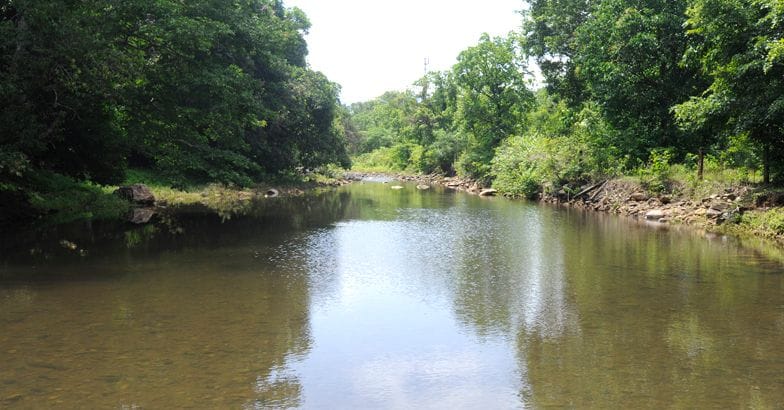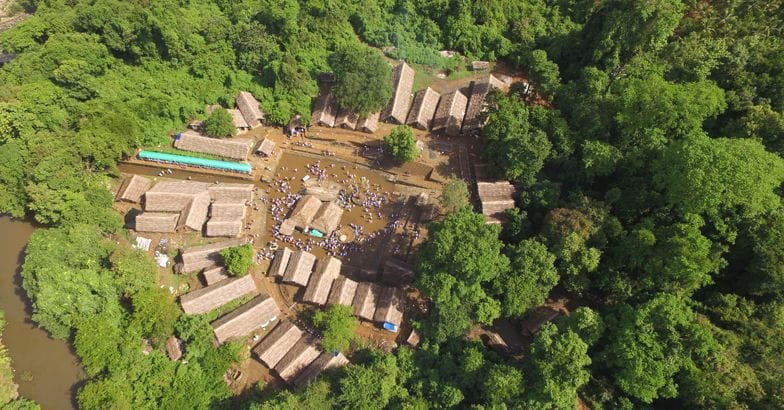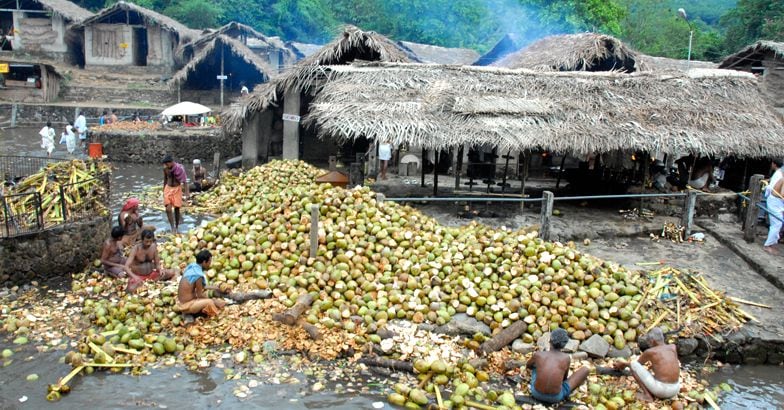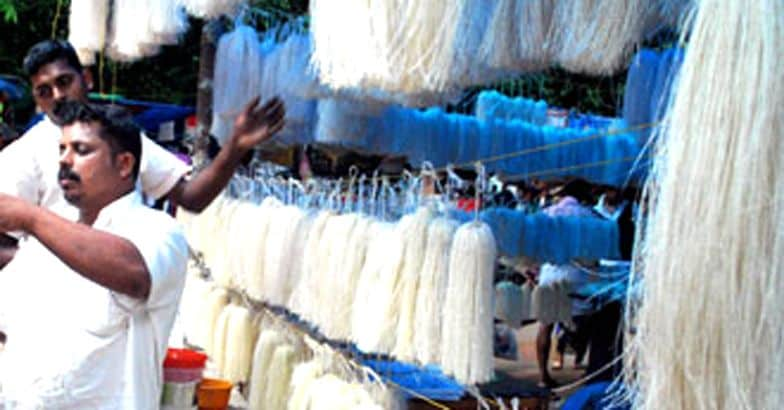Kottiyoor: the site of a legendary sacrifice

Mail This Article
It is festival time at Kottiyoor temple in Kannur district, which is also referred to as the Kashi of the south. The Kottiyoor Vaisakholsavam, which can be termed the biggest festival in Malabar, is celebrated from the Chothi asterism in the Malayalam month of Edavam to the Chithira asterism in Midhunam.
The Kottiyoor temple is located on both banks of the Bavali River, which is considered holy by devotees. On the southern bank, which is referred to as Ikkare, a permanent temple exists. On the farther bank on the northern side (Akkare), a temporary temple is built during the Vaisakha festival. During the festival days, no rituals will be conducted at Ikkare Kottiyoor.
On the farther bank is situated the original temple. Here, in the middle of the stream, Lord Shiva as Mahadeva exists as a self-formed deity at a spot referred to as Manithara. His consort Goddess Parvathy, considered the source of divine energy, prevails at a nearby platform called Ammarakkal thara. Rituals are offered at both these sites only during the Vaisakha festival.

On non-festival days, the lord is believed to stay at the near bank and entry to the farther bank of the river - Akkare - is not allowed.
The legend
Kottiyoor is believed to be the place where the legendary sacrifice Dakshayagam was conducted in the presence of all the deities. So a visit to this place is considered extremely sacred. Daksha, the father of Sati Devi, performed a sacrifice (yaga) for prosperity inviting everyone, except lord Shiva. Sati Devi, who reached the venue of the ritual uninvited, jumped into the sacrificial fire as she was pained over the humiliation meted out to her husband Shiva by her father Daksha.
When Shiva came to know about Sati’s sacrifice, he was enraged and cut his matted hair which he then smashed on the ground. From the impact, emerged Veerabhadra who reached the venue of Daksha’s yaga and beheaded him. A frightened Vishnu, Brahma and other deities rushed to Kailas. They pacified Shiva and made him realise the consequences of disrupting the yaga.
With Shiva’s permission, Brahma gave a rebirth to Daksha and the ritual was completed.
Main ceremonies

The spot where lord Shiva emerged on his own (swayambhoo) is called Manithara. His consort and the daughter of Dakshaprajapathy, Sati Devi, immolated herself at a platform which is now termed Ammarakkal thara. The path for circumambulating the two holy spots is named Thiruvanchira. It originated from the stream of blood that had flowed there ages ago.
The Vaisakha festival is held during the rains. Or, it is believed that there will be rain when the festival is held. Kottiyoor is the only temple where, according to ritual, the path for circumambulation should be immersed in flowing water.
The daily rituals at the temple could be termed as yaga. They were codified at different times by Parasurama and Shankaracharya. There are seven main sections and four sub-sections. In addition, several unique rituals. They include Prakkoozham, Neerezhunnallathu, Neyyattam, Bhandaramezhunnallathu, Elaneerattam, Kalam varavu and Kalasattam.

On Thiruvonam, Revathy, Ashtami and Rohini asterisms, special ceremonies are conducted at Kottiyoor. These ceremonies constitute the sub-sections. Women are not allowed at the Akkare Kottiyoor temple before the Bhandaramezhunnallathu on Vishakam day and after the noon Seeveli on Makam day.
Odappoo prasadam offering
Devotees offering prayers at Kottiyoor during the Vaisakha festival take home Odappoo, flowers made of tender bamboo fibre, which is closely related to the myth of Dakshayaga. Veerabhadra had removed the beard (deeksha) of Daksha before cutting off his head. Veerabhadra threw the beard hair in the wind and it spread all around. The Oda flowers represent the deeksha and are hung in front of houses, in prayer rooms and on vehicles. Devotees believe that this would bring prosperity.

Special days during the 2018 Vaisakha festival
May 27, Sunday – Neyyattam
May 28, Monday – Bhandaramezhunnallathu
June 4, Monday – Thiruvonam Aradhana
June 5, Tuesday – Elaneer Veyppu
June 6, Wednesday – Ashtami Aradhana Elaneerattam
June 9, Saturday – Revathy Aradhana
June 13, Wednesday – Rohini Aradhana
June 15, Friday – Thiruvathira Chathussatham
June 16, Saturday – Punartham Chathussatham
June 17, Sunday – Ayilyam Chathussatham
June 18, Monday – Makom Kalam Varavu
June 21, Thursday – Atham Chathussatham, Valattam and Kalasa Pooja

